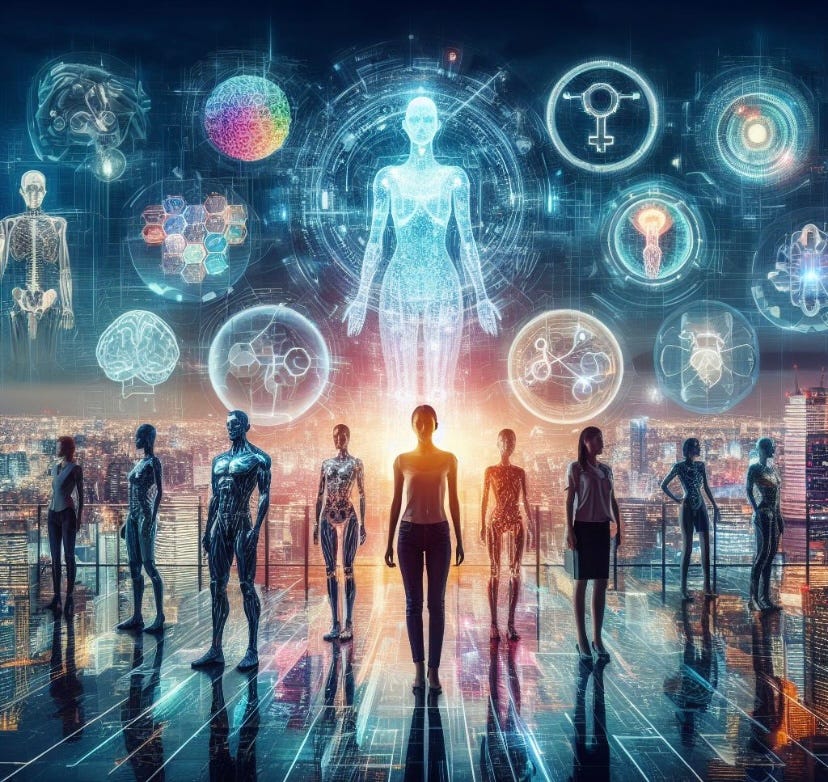Transhumanism is a philosophical and intellectual movement that explores the potential enhancement of the human condition through the application of advanced technologies. It envisions a future where scientific and technological advancements lead to the augmentation of human capabilities, transcending the limitations of biology. One key aspect of transhumanism is the pursuit of radical life extension, aiming to overcome the constraints of mortality.
Advocates of transhumanism argue that advancements in fields such as biotechnology, nanotechnology, and artificial intelligence could empower humans to enhance their physical, cognitive, and emotional capacities. The idea is to use these technologies to overcome biological constraints and, in essence, redefine what it means to be human.
Biotechnological interventions, such as genetic engineering, hold the promise of eliminating hereditary diseases and enhancing desirable traits. However, ethical concerns arise regarding the potential for creating a divided society based on genetic modifications and the unintended consequences of manipulating the human genome.
Nanotechnology plays a crucial role in transhumanist visions by enabling the manipulation of matter at the molecular and atomic levels. This could lead to the development of nanobots capable of repairing tissues, enhancing cognitive functions, or even augmenting the immune system. Yet, ethical considerations and the potential misuse of such technology pose significant challenges.
Artificial intelligence is another cornerstone of transhumanism, with the goal of creating intelligent systems that can augment human intelligence and decision-making. However, concerns about job displacement, loss of privacy, and the ethical implications of autonomous AI systems raise complex questions that need careful consideration.
The concept of mind uploading, transferring human consciousness into digital form, is a speculative idea within transhumanist discourse. While it sparks imagination about potential immortality, it also prompts ethical questions about the nature of consciousness, identity, and the potential risks associated with digitizing human experiences.
Critics of transhumanism express concerns about the social, ethical, and economic implications of pursuing such radical transformations. Issues of accessibility, equity, and the potential for creating a divide between enhanced and non-enhanced individuals pose challenges to the ethical implementation of transhumanist ideals.
Transhumanism represents a thought-provoking exploration of humanity's potential evolution through advanced technologies. While the movement offers exciting possibilities for overcoming biological limitations, ethical considerations and societal impacts must be carefully addressed to ensure a responsible and equitable path forward. The future of transhumanism depends not only on technological advancements but also on thoughtful ethical frameworks that guide the responsible development and application of transformative technologies.







Agreed!! Wearing tech, ok...it been an actual part of me I’m not so sure of 💕
I grew up with The Six Million Dollar Man and The Bionic Woman. While I think that the bionic concept is cool, considering how terrible we (the US) are with traditional medical implants (failed hips and discs, mesh slings, not to mention the autoimmune disorders likely caused by breast implants), I'll hard-pass any technology being put in my body. I had a hard enough time agreeing to an Apple Watch. LOL. ❤️ xo